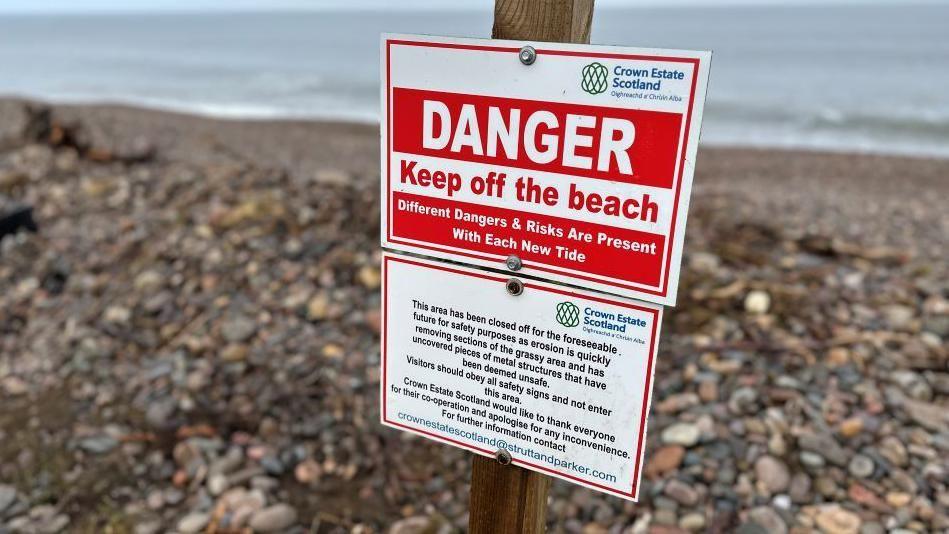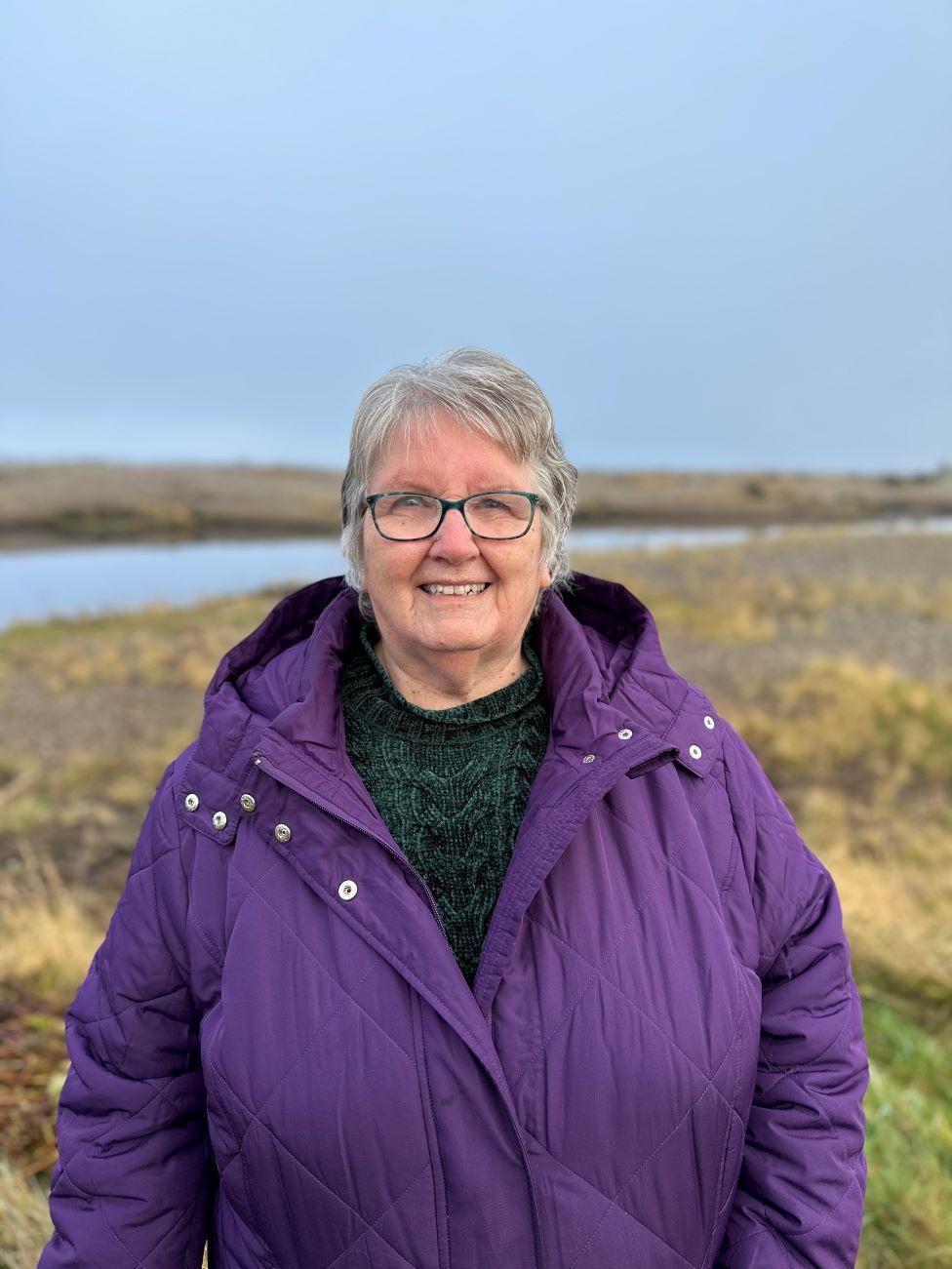Another storm could turn our village into an island
Another storm could turn our village into an island
- Published
Residents of a small village on the Moray Firth coast fear they will be cut off by the sea.
Kingston, east of Lossiemouth, is close to the mouth of the River Spey.
There are concerns a natural shingle bank protecting the community from the sea will be breached, and water will reach the Spey resulting in flooding on all sides.
Kingston locals fear one more winter storm could turn their village into an island.
Moray Council said it was working on coastal adaptation plans which will be published in the spring.
But the beach has moved up to 40m (131ft) inland in the last 15 years and locals are worried now.

Jim Mackie, 73, grew up nearby. The threat of coastal erosion is never far from his thoughts.
"The amount of erosion along the coastline here has been unreal. The sea is getting closer and closer to the village," he said.
"We already have problems with emergency services' lack of access to the community when there are floods or the spring tides - they can't get in.
"As and when the sea breaks through, then Kingston is going to be cut off.
"The houses will become worthless, people won't be able to sell houses, won't be able to fulfil mortgages."

Jim Mackie said people's houses would become worthless
He recalled seeing houses lost to the Spey when he was 10 years old.
"The river came past here, there was a gathering because everyone anticipated the house was going to go.
"It was just in slow motion - the edge nearest the river went down, and the back of the house just slowly slid into the river like a boat that was being launched."
Kingston's geographical position at the mouth of the River Spey saw a huge shipbuilding industry build up there in the late 18th Century.
Timber would be floated down the Spey from forests upstream to multiple shipyards based at the mouth of the river.
But the industry which made the location what it was would not be viable now given the changes to the river and the coast.

Marc Macrae of Moray Council said coastal adaptation plans were being worked on
Locals say the River Spey isn't being managed as it used to be.
David Mackay is from the Garmouth and Kingston Heritage Trust. "I've lived in the village for 50 years plus and the change has been dramatic," he said.
"In the 60s, the council started to move the mouth every eight or nine years, this meant the shingle didn't have a chance to lie in the river.
"The river is getting shallower and all that shingle should be on the beaches."
Moray Council said that Coastal Change Adaptation Plans were being worked on.
Local councillor Marc Macrae told BBC Scotland News that the shingle beach had receded again in the last storm to hit the area.
He said: "The water's come in much further this time. It just takes a few more of those and I think Kingston will be cut off.
"It will be cut off by the Spey on one side and the sea will circle it on the other.
"There's a big elderly population that live along the coast of Moray. At the moment many are afraid of the sea undermining their properties and of losing their homes."
"We need some flood adaptation actions now.
"You will never stop it completely but if we can reduce the frequency of these events and reduce the damage they cause it is surely a win-win for these communities."

Anne Speake is concerned about becoming trapped
Anne Speake has lived in the village for more than 20 years but is worried what will happen in the next big storm.
"We see the shingle come and go but when the weather is really bad the sea breaks through the shingle. We wonder how are we going to get out," she said.
With increased rainfall and more storms expected, how coasts and rivers are managed will impact increasingly on those living nearby.
A Moray Council spokesperson said: "The Coastal Change Adaptation Plans we're developing with stakeholders, including coastal communities, aim to identify influencing factors that define the direction and requirement for adaptation, such as hazards, climate change, demographics, development potential, and economic opportunities.
"These influencing factors will be monitored and changes assessed to find out if they meet pre-defined triggers that activate action to manage coastal change. If so, stakeholders will be consulted on possible actions."
Nature Scot said it recognised that storms and floods were a very real concern for the community at Kingston and that it was supportive of Moray Council's ongoing work.
They said: "We commend them for being the first local authority to develop these adaptation plans, which aim to keep communities resilient in the face of increasing coastal climate risks.
"Being prepared, and working with nature rather than against it, will help us adapt to climate change. "